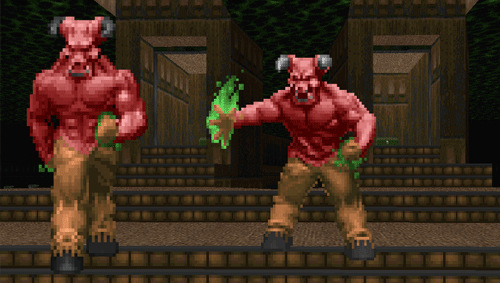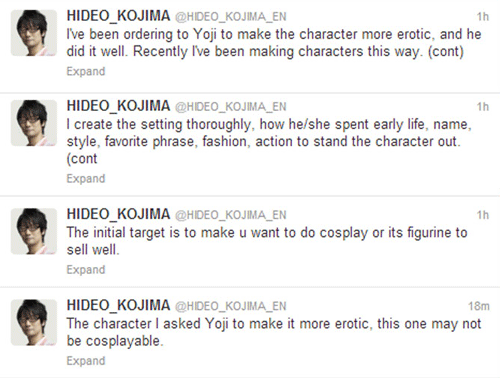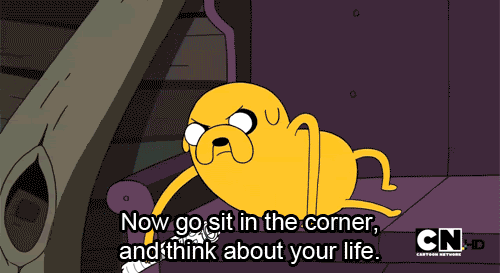Gaming culture is going through some awkward growing pains right now. It’s disappointing that we had to drag it out from under the covers and push it out the door for it to happen, but subcultures are nothing if not finicky. While I’m happy that discussions about inclusivity are becoming more prominent, it brings up memories of how long I spent sitting on the proverbial fence, not wanting to make waves in something I cared about. I didn’t respect the medium enough to look at it for what it truly was, and I regret that.

The fence wasn’t terribly comfortable, anyway. (Image from Stock Xchng.)
There have been some polarized opinions concerning the spotlight that news outlets have been putting on bigoted tendencies within the gaming industry and its visible community. Writers are spoiled for choice, what with questionable advertising (e.g. Deep Silver’s bloodied and bikini’d torso), the #1reasonwhy Twitter trend, troubling reports coming from conferences both public and professional, and the ongoing backlash towards Anita Sarkeesian’s Tropes Vs. Women series, not to mention blogs documenting the many hateful messages aimed at anyone considered an “other” in gaming communities. People far more articulate and knowledgeable than I am have dissected both extremes, and this isn’t really about them. This is about all those people sitting on the sidelines.
To be honest, it took a couple years of playing video games to start feeling like something was off. As a toddler, I was too busy giggling about the rocket launcher in DOOM to really reflect on representation and themes. Eventually I did start to wonder why I hadn’t come across any characters like Lex Murphy or Dr. Ellie Sattler from the Jurassic Park film, or Lieutenants Uhura and Yar from Star Trek, but the world was new and big and I figured I just had to keep playing until I found them.

I called the Barons of Hell “pink monsters with pants on.” Critical thought was not yet in my grasp. (Image via DOOM Wikia.)
Then the dissonance grew louder. Unfortunately, it did so at a time of youthful angst and conflicted feelings about how to fit into society. In my case, my gender expression was different from everyone else’s, but there are plenty of other poisons that can harm a kid’s self esteem or make one feel foreign. It’s not like I was self-aware of it at that point, anyway. I had subconsciously begun to see this false idea of femininity that was present in my hobbies as what the world wanted from me but I couldn’t provide. In my mind it wasn’t something that could be fixed. Regardless of the reasons, I fell into the same trap of defending the wrong things.
I was the weird one, not those characters. Gaming was fun, and something I could connect with my peers over. I grew up around adults, with little to none of the typical childhood activities, so it felt good to have something in common with people my own age, especially
if that thing didn’t have anything do with dolls or fashion. Why would I want to look that gift horse in the mouth?
It never got to the point where gaming became a self-professed part of my identity, but I can see why people might describe themselves that way. Avid fans could easily boast of tens of thousands of hours spent in virtual worlds. The hobby becomes a very real part of people’s lives, as a creative outlet, a form of stress relief, or a hub for socialization. So, it’s no surprise that people are quick to defend not only gaming in its present state, but also their cherished memories of it. Emotional investment can cloud your thinking.
Still, as I grew older and observed discrimination, I could no longer pretend that nothing was wrong. I did, however, act like a person trying to avoid spoilers. I put on blinders and ear plugs in a shallow attempt to avoid coming to terms with years of misplaced blame and personal demons. Every stone I overturned seemed to have some grim creature beneath it. After finding out about H. P. Lovecraft’s racism, I couldn’t love his mythos in the same way. It has proved difficult to amp myself up enough to read Ender’s Game after what I learned about Orson Scott Card. I wanted something unblemished that I could enjoy without remembering the more terrible aspects of reality, because I was burnt out.
Multiplayer games made this impossible. I avoided some flak by virtue of preferring androgynous names and avatars, and by setting all my profiles to be private. Voice chat was still an issue, so I stopped using it, and then I stopped playing games online. I could’ve defended myself, but all I wanted to do was relax and play, so I wrote off the community.
In my late teens, something snapped. I could rarely visit a review site or YouTube gaming channel without hearing something racist, sexist or homophobic, and I was still being harassed and solicited despite largely staying away from multiplayer games. Mostly, though, I got upset at how so many people were abused. At some point this subculture became a place where that kind of behavior is to be expected, and part of it was my fault.
There’s no such thing as a refuge that exists outside the ills of humanity. Instead, we have an imperfect mess of things, and that’s okay. What’s not okay is thinking that this reality cannot be improved upon. Games are the way they are because that’s how we designed them, and the internet has lowered our expectation of peer accountability by making echo chambers more accessible. These aren’t easy problems to solve, but don’t gamers thrive on challenges?
Games are a shared cultural experience, and they are intertwined into many of our daily lives. To say that they’re not important enough to reflect upon is folly, because the issues in play here concern our ability to listen to each other and discuss ways of including and welcoming often marginalized perspectives and people. This is not a video game problem, it’s a societal problem. It’s not as fun or cheery as talking about our favorite characters or genres, but is absolutely something worth putting our creative minds toward. My imaginary playroom may have been crushed, but now I’m helping to build a real one that can fit all kinds of people inside, not just one weary little girl.




Very well said. I enjoyed reading this experience very much. Thanks for sharing your story. I identify with some of this as phases I also went through growing up with games.
I really enjoyed this article (and this website)! I think I have self-conflicting perspective about writers with baggage. To this day I still enjoy Lovecraft, Robert E Howard and Tolkien despite the fact that the worlds they made were male-dominated, white-centric settings. A similar crisis struck me in my late teens where I was sick of white-centricism in fantasy; but these days, unless it’s obvious, I overlook it except for a few cases.
I don’t tolerate certain writers anymore: mainly Joe Abercrombie, Mark Lawrence and Patrick Rothfuss among others. Their depiction of women has really disgusted me (which is mainly as a sexual object to be pursued or raped). So I completely sympathize with you in that case.
Orson Scott Card I’m divided on. I don’t like Sci-Fi, and I typically don’t begrudge someone their way of thinking or world-view. I understand why people refuse to buy anything associated with him, but on the other hand I don’t see his beliefs creeping into his fiction works like I do the other three I mentioned. In others words, Card produces work, on the one hand, where he actively promotes his world-view (which I wouldn’t buy either) and he produces work where his homophobia is not expressed, at least that I’ve heard of.
But, then again, I also won’t read Vox Day’s books since, on his blog, he advocated the view that Hispanic people are genetically inferior in every sense. Kind of ticked me off. So I wouldn’t want my money that my inferior genes earned polluting his money pool.